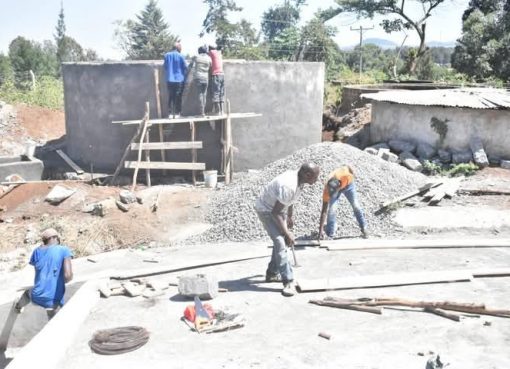The Anti-Counterfeit Authority (ACA), has today joined the rest of the world in recognition of the World Anti-Counterfeit Day organized by the Global Anti-Counterfeiting Group (GACG).
Through the theme “Leveraging on Technology to Combat Counterfeiting,” Kenya being the only member of the GACG from the East Africa region (through ACA) joined Nigeria and Zimbabwe, the other two African countries, to mark this important day.
The Deputy Head of Public Service and National Coordinator of the Enforcement Multi-Agency Team Against Illicit Trade in Kenya, Mr. Wanyama Musiambo, asks for the elimination of counterfeit and illicit trade for both public and private sectors, for the prosperity of Kenyans.
ACA Acting Executive Director, Mrs. Fridah Kaberia, said that record keeping is a game changer in the war against counterfeiting and also seeks to create a firm Property Rights Database that will be used by officers at the borders to easily identify counterfeits before entering the Kenyan market.
“As Kenya embraces innovation and technology, this intellectual Property Right (IPR) recordation measures, will use image processing software to assist custom and border point inspectors, to have brand information and counter the entry of counterfeits into the country,” added Kaberia.
According to the World Economic Forum, illicit trade creates an annual drain on the global economy of 2.2 trillion US Dollars, nearly 3 per cent of the world’s economy.
Further, the National Baseline Survey on Counterfeit in Kenya, has integrated the total size of illicit trade at approximately Sh 826 billion in 2018, rising from Sh 726 billion in 2017 which translates to 8.9 per cent and 9.3 per cent of the country’s Gross Domestic Product (GDP) respectively.
Kenya, like any other economy, is facing the wrath of counterfeiting and illicit trade that is affecting the government development agenda under the ‘Big Four’ Agenda.
The development framework targets to have the manufacturing sector increase its contribution to the GDP from 8 per cent in 2017 to 15 per cent by the end of this year.
By Abdiaziz Mohamed and Alain Christian





